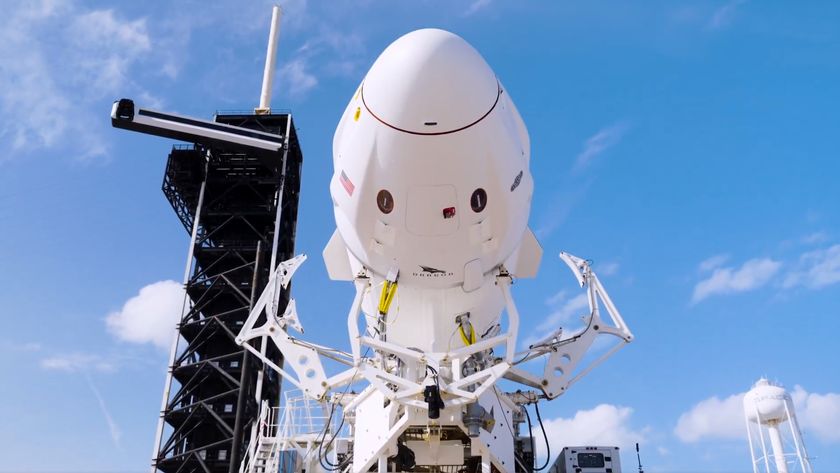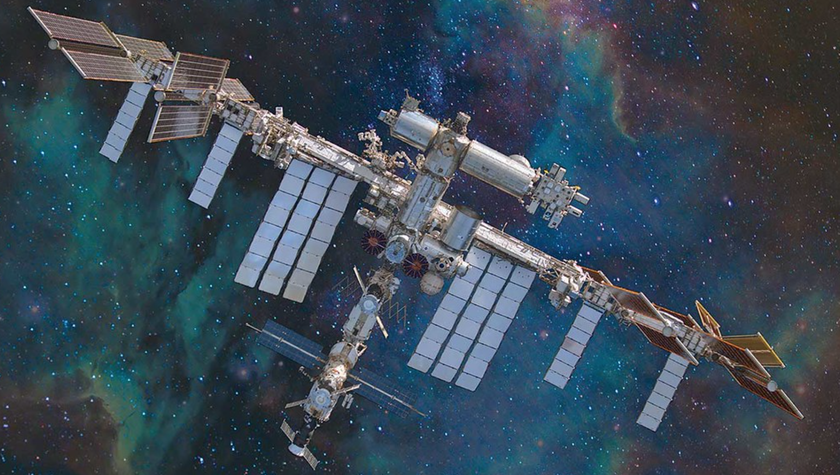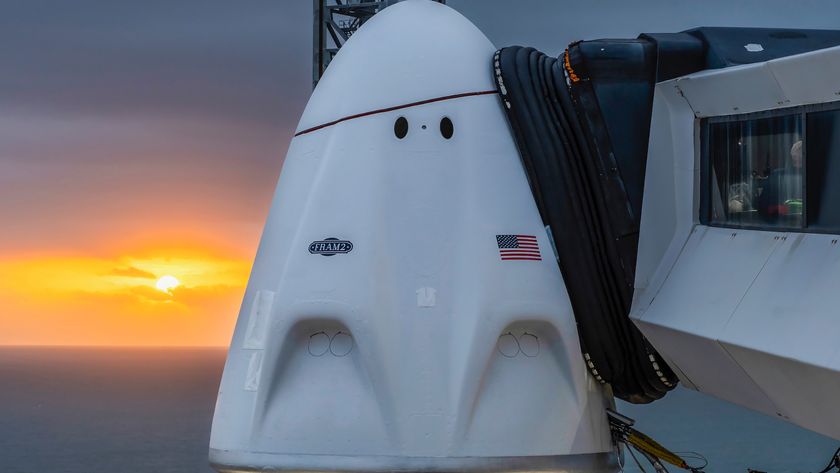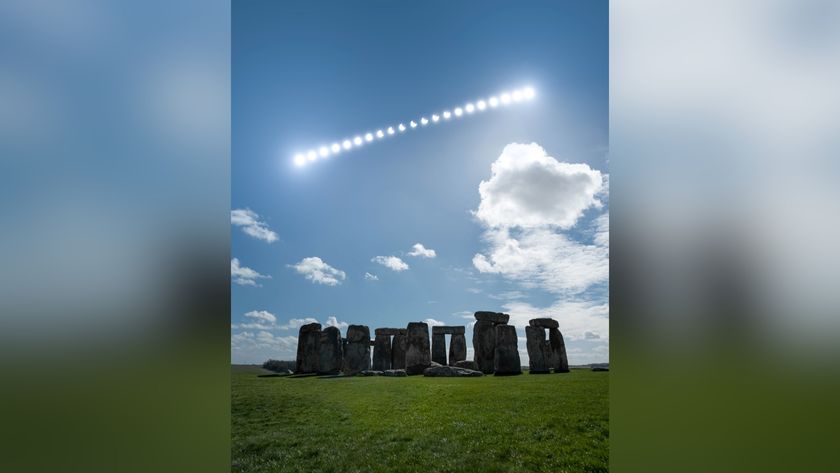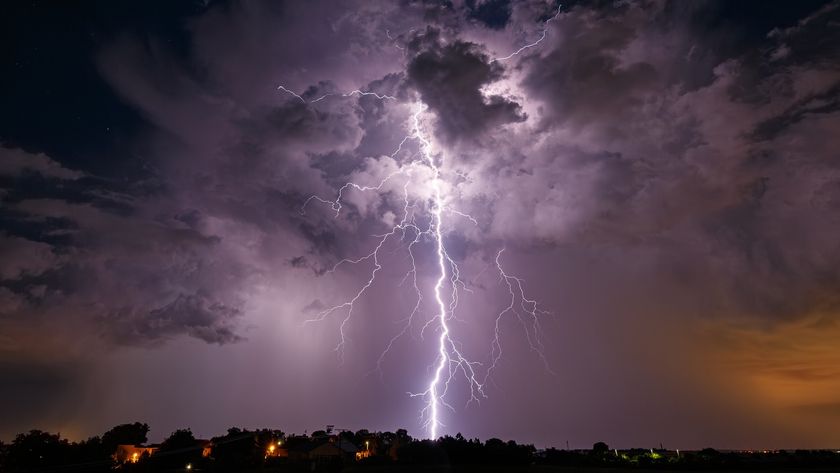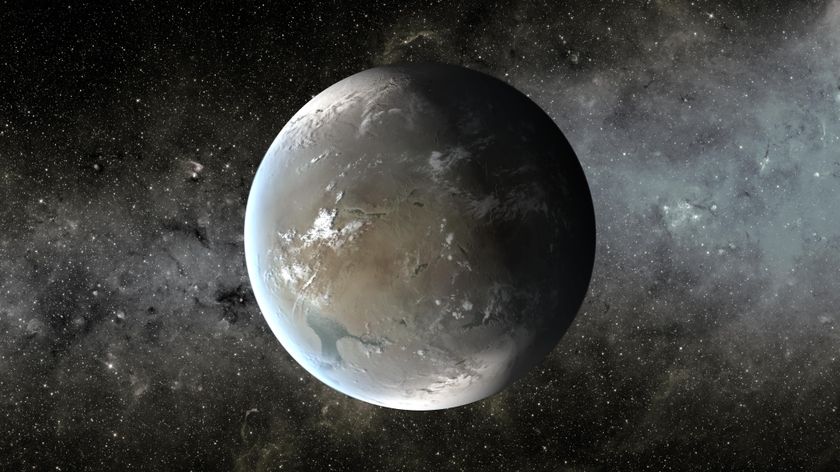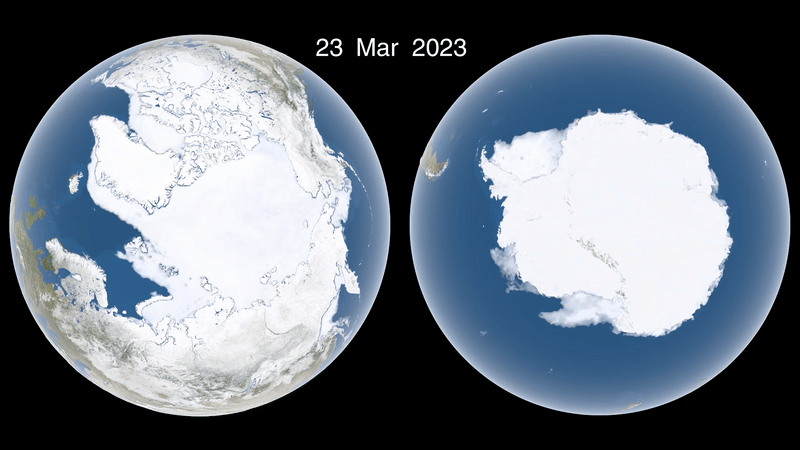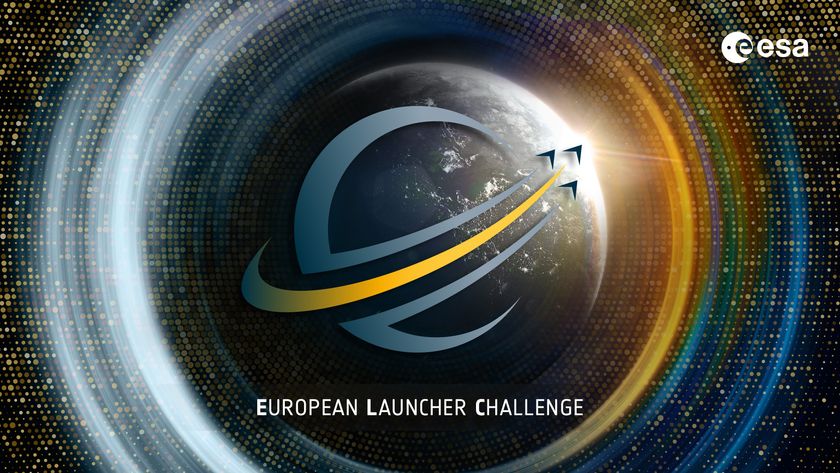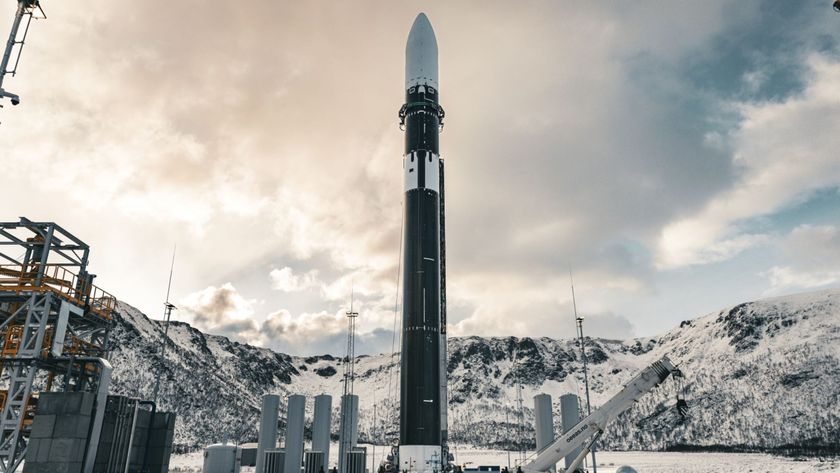Humans must continue exploring space, if only for theromance of it, and time travel should be possible, but engineers will have tofigure out a way to warp space-time to be sure, famed physicist Stephen Hawkingsays.
Hawking spoke out on those subjects and others in a Sunday interview with PARADE Magazine todiscuss his new book "The Grand Design" with Caltech physicistLeonard Mlodinow.
In the interview, Hawking saidhe supports the continuation of human space exploration.
Robots may be good at gathering data, he argued, butthey shouldn't entirely replace people in space. Seeing astronauts floatingaround in all that vast blackness is inspiring, and people need inspiration, headded.
"Science is not only a disciple of reason, but, also,one of romance and passion," Hawking told PARADE.
On paper, time travel should also be in cards because ofAlbert Einstein's general theory of relativity, which allows for the potentialto warp space-time so much that a traveler could leave Earth in a rocket and return home before he or she ever departed, Hawking said.Of course, that means you have to be able to warp space-time, which is prettytricky.
"I showed it would require matter with negativeenergy density, which may not be available," Hawking said.
Get the Space.com Newsletter
Breaking space news, the latest updates on rocket launches, skywatching events and more!
Hawking also touched on the need for some cosmic perspective,too.
He compared humanity's viewof the universe to that of a goldfish looking out of its bowl, saying thatwe can't be sure our view is the "correct" one. We might be in agiant goldfish bowl, for there is no single, absolute picture of reality, headded.
The PARADE interview also touched on other topics suchas Hawking's family life, his hopes for science to transform a troubled Africancontinent and his commitment to helping regular people understand basic factsabout the cosmos.
"Most people don?t have time to master the verymathematical details of theoretical physics," he says. "But I believeeveryone can, and should, have a broad picture of how the universe operates andour place in it. This is what I have tried to convey in my books."
But Hawking did not address some of his other views,which have generated a lot of media buzz recently. [StephenHawking's view on alien life.]
In an April episode of his TV series "Into theUniverse with Stephen Hawking," the physicist warned humanity not to be sorapturously eager to find extraterrestrial life.
Advanced spacefaring civilizations could be on the prowlfor resources, he said on the show. They may be interested only in conqueringand strip-mining the Earth, not getting to know us.
And in his new book, Hawking argues that Godis not necessary to explain the universe; the law of gravity is enough byitself.
"Because there is a law such as gravity, theuniverse can and will create itself from nothing," he wrote."Spontaneous creation is the reason there is something rather thannothing, why the universe exists, why we exist. It is not necessary to invokeGod to light the blue touch paper and set the universe going."
Hawking is now almost completely paralyzed by theneurodegenerative disease amyotrophic lateral sclerosis (ALS, also known as LouGehrig's disease). He answered the interviewer's questions by twitching onemuscle in his right cheek, sending an infrared beam to a computer thattranslates the twitches into words.
Despite his disability, Hawking said he has lived a fulllife. He has children and grandchildren, and has traveled the world. He hasexperienced weightlessness, taking a flight in 2007 aboard a plane whoserollercoaster motion generated zero-gravity conditions for short spells.
In the PARADE interview, Hawking said he has no plans toslow down.
"I have traveled the world, from the Antarctic tozero gravity," he said. "Perhaps one day I will go into space."
- Biggest Revelations of the Space Age
- The Greatest Mysteries in Science
- Stephen Hawking: God Didn't Create the Universe
Join our Space Forums to keep talking space on the latest missions, night sky and more! And if you have a news tip, correction or comment, let us know at: community@space.com.

Michael Wall is a Senior Space Writer with Space.com and joined the team in 2010. He primarily covers exoplanets, spaceflight and military space, but has been known to dabble in the space art beat. His book about the search for alien life, "Out There," was published on Nov. 13, 2018. Before becoming a science writer, Michael worked as a herpetologist and wildlife biologist. He has a Ph.D. in evolutionary biology from the University of Sydney, Australia, a bachelor's degree from the University of Arizona, and a graduate certificate in science writing from the University of California, Santa Cruz. To find out what his latest project is, you can follow Michael on Twitter.
